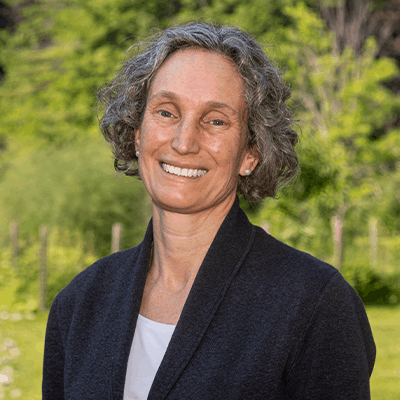By Rebecca Holcombe
Editor’s note: Rebecca Holcombe is a Vermont Representative from Windsor-Orange 2 who served as the Vermont Secretary of Education from 2014 to 2018.
Vermonters suffer from unsustainable increases in the cost of everything from property taxes to healthcare. Too many people are working hard and stretching Social Security checks but still worry about bills. To understand why, we need to talk about demographics.
The aging of our population means more demands on our health care system, fewer kids in our schools, and fewer working-age Vermonters. We need to adjust how we operate to accommodate the reality of who we are.
A recent healthcare sustainability report drove home one impact of our changing demographics.
We expect the number of people over age 65 to increase to 31% of our total population by
2040. This means we will need more expensive healthcare, including more dementia care and more care related to cancer, heart disease, and stroke-related hospitalizations. Without changes, this means healthcare may get MORE expensive, even though we already feel we are paying too much to get too little.
As our working-age population contracts by an estimated 13% by 2040, we’ll likely have fewer people to fill critical jobs, including healthcare providers. These reductions may cause gaps in preventative care and overdependence on expensive traveling providers. We will also have fewer people insured by private insurers and more insured by Medicare and Medicaid.Government payers generally pay “fixed rate” for healthcare. When hospitals want to spend more, their first lever (aside from better managing costs or collaborating to find economies of scale) is to raise private insurance rates to make up the difference. This means our shrinking work-aged population disproportionately shoulders the burden of growth in healthcare costs.
Some of the care we need could be better delivered at a lower cost outside hospital settings, including by primary care providers and community care coordinators. This won’t happen without additional housing that enables our workforce to grow. In fact, this recent report singled out additional housing as one of the most important strategies for bringing down healthcare costs. The Green Mountain Care Board also identified out-of-control healthcare premium increases as one major driver of increased school budget costs.
Multiple local businesses and nonprofits worry about the shortage of workers and the harmful impact of relentless healthcare cost increases. Some had to choose between increasing wages and providing benefits. Wages in Vermont have not kept pace with inflation, which means many working households are worse off than they were a few years ago. Low wages paired with high cost of living make Vermont a less attractive place for a family to live.
Our school-aged population is expected to shrink through 2040. As student numbers shrink, the cost per pupil in our public schools increases, driving up property tax bills. Small scale equals higher cost. We need a new and less inflationary funding formula, but we also have to discuss what we spend, not just who pays. As a state, we have too much school infrastructure in some places for the children we have. In those regions, we are trading better quality and lower cost for “local control” and higher tax bills for everyone. Moreover, spending public school dollars on out-of-state prep schools and religious schools reduces scale; in contrast, redirecting those dollars to inclusive Vermont schools with a public mission would bring down everyone’s tax bills.
If our state population isn’t growing, why is housing scarce? Many of us live in the homes where we raised our kids, but our kids are gone. The average size of our households has shrunk. We need more housing to accommodate the same size population. Worsening the challenge, almost 1 in 5 homes in Vermont is now a second home.
Recent migration patterns suggest that in-migration is offsetting some of our natural population decline. However, even before the pandemic, state migration data indicated that while a handful of better-off families are choosing to relocate to Vermont, we are losing moderate-income families, especially those whose yearly income is under $100,000. These families represent an essential part of our workforce. We can’t afford to put Vermont out of their reach.
We can fix our housing, healthcare, and property tax challenges. We need state-level leadership to focus our precious dollars and efforts on the most powerful strategies for building a prosperous and affordable future.
Don’t like high property taxes, high health care premiums, the workforce shortage and climate resilience? Get behind state expansion of wastewater treatment systems in developable regions near job centers and outside flood zones.
We can’t cut our way to prosperity. We need a new approach. We can’t afford to use K12 school budgets to pay for every new program. We must tackle healthcare costs through reference pricing, reorganizing our hospital system, and strengthening primary care and community care coordination. We must also increase the supply of reasonably-priced, climate-friendly housing near where people work but not in flood zones. Housing will bring back the working families we need to build our future.




